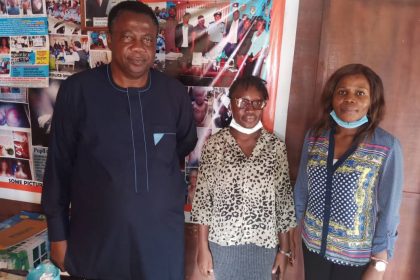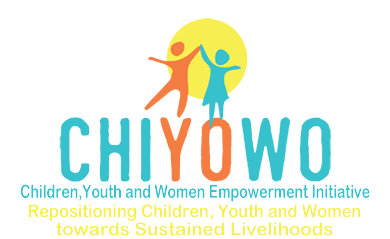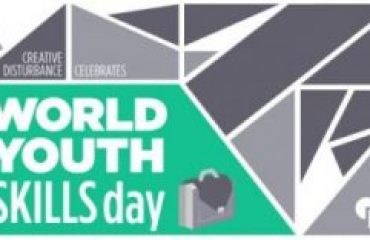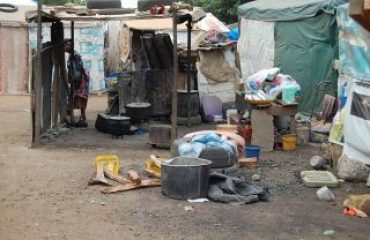
CPN ADVOCACY VISIT – The Report
27/08/21
Children, Youth and Women Empowerment Initiative (CHIYOWO)
Children Youth and Women (ChiYoWo) Empowerment Initiative is an NGO registered in Nigeria, whose primary focus is to enhance opportunities for disadvantaged children, youth, and women to achieve sustained livelihood.
A lot of our work involves connecting communities, part of which is the Programmatic Intervention on Child Protection and Safety. ChiYoWo has worked with over 30 schools across Nigeria.
As part of our focus area, ChiYoWo works around Child Protection and Safety. Under this program, we provide awareness programs and interventions that promote child protection and safety in Nigeria.
It is no news that child exploitation happens everywhere. Sadly, even in the places where children should feel safe the most, such as schools, homes, and even churches. Unfortunately, children are abused and exploited by people whom they trust, and many times these crimes go unreported as children don’t usually speak up. To ensure protection and safety for children, ChiYoWo is currently advocating for a social system and structure that works for children.
The aim of our meeting with you today is to discuss with you how we can work as a partner to ensure that schools in Lagos state develop and implement a Child Protection Policy drawn from the Lagos State Child Right Law. We believe that when schools implement a Child Protection Policy, the exploitation, and abuse of children will be reduced to a minimum in schools.
It is known that the home and the school are places of primary knowledge and safety for children. Our children should be able to feel safe both at home and in school as they spend a reasonable amount of in school as they do at home.
The issue of children’s rights is poorly defined in legislation and by the courts, partly because many nations have not decided the rights to accord to children. For one to comprehend what a child’s right is, the terms ‘right’ and ‘human rights’ will have to be defined. The term ‘right’ is often used to describe any advantages conferred on a person by a rule of law (Akwara et al., 2010). Rights are those things to which one is entitled or allowed to enjoy. They are freedoms that are guaranteed.
Child rights are basic entitlements every child in the world should be able to enjoy or to have. All children have the same rights. All rights are connected to each other and are equally important. Child’s rights are human rights with particular attention to the rights of special protection and care afforded to minors (Amnesty International, no date). They include rights to; association with parents, human identity as well as the basic needs for food, universal state-paid education, health care, and criminal laws appropriate for the age and development of the child. Child’s rights are also rights to equal protection of civil rights and freedom from discrimination on the basis of the child’s race, gender, sexual orientation, gender identity, national origin, religion, etc.
Interpretations of children’s rights range from allowing children the capacity for autonomous action to the enforcement of children being physically, mentally, and emotionally free from abuse, though what constitutes “abuse” is a matter of debate. Freeman (1983) posits that child’s rights are human rights that are wide-ranging and include entitlement to a name and nationality; freedom from discrimination; social security extending to adequate nutrition, housing, recreation, and medical care; entitlement to free education and equal opportunities. They also include protection from all forms of cruelty, neglect, and exploitation and the right to love, understanding, and affection.
As we all know, Child’s Rights Law (CRL) was introduced in Lagos State in 2007. Six years after its domestication, it became imperative to assess the challenges in the application of the justice provisions by different child justice administrators such as social welfare officers, the police, non-governmental organization (NGO) workers, Nigerian Bar Association (NBA) lawyers, International Federation of Women Lawyers (FIDA), family court judges and magistrates.
In Nigeria, prior to the 2003 Child’s Rights Act, child protection was guided by the Children and Young Persons’ Act (CYPA) 1943, a law relating primarily to juvenile justice. It was promulgated to make provisions for the welfare of the young and the treatment of young offenders and the establishment of Juvenile Courts (Alemika, et al. 2005). There were inadequate guidelines on the interpretation of its provisions. It was interpreted within the larger criminal justice procedural safeguards and constitutional framework (Ogunniran, 2013). Nigerian Government ratified the CRC in March 1991.
Nigeria also ratified other international instruments that generally affect the rights of the child, such as the Convention on the Elimination of all Forms of Discrimination against Women (CEDAW), the Convention against Torture and Other Cruel Inhuman or Degrading Treatment or Punishment and, the Convention on the Elimination of All Forms of Racial Discrimination. Nigeria is also a party to the International Covenant on Civil and Political Rights and to the International Covenant on Economic, Social, and Cultural Rights. In addition, Nigeria ratified regional instruments such as the African Charter on Human Rights and People’s Rights and the African Charter on the Rights and Welfare of the Child (ACRCW). It is important to note that the protection of human rights in Nigeria is also enshrined in the 1999 Constitution of the Federal Republic of Nigeria. Chapter IV contains an elaborated Bill of Rights. Nigeria has two separate codes for penal infractions; one applies to Southern Nigeria (Criminal Code) and the other to Northern Nigeria (Penal Code).
However, while Nigeria is a signatory without reservation to CRC, it was not domesticated and thus had no legal force in Nigeria until 2003 when the Child’s Rights Act (CRA) was enacted. As of today, 26 of the 36 states have adopted the CRA (2003). Lagos State adopted the Act in 2007 and named it the Child’s Rights Law (CRL) (2007). In conformity with one of the CRC’s provisions which states that laws relating to children should be made accessible to them, Lagos State has simplified the Law and presented it in several quick forms. The rights protected by and provided for in this law cover the broad areas of social, economic, and civil rights. The CRL is primarily concerned with four aspects of children’s rights (“the four ‘P’s”): participation by children in decisions affecting them; protection of children against discrimination and all forms of neglect and exploitation; prevention of harm to them; and provision of assistance for their basic needs.
Under the Lagos State Law, children have the right to Life, survival, and balanced development; a name and registration at birth; dignity and respect; privacy, family life and parental care, protection, and maintenance. They have the right to free and compulsory primary education and encouragement of secondary and tertiary education; health and health services; leisure, recreation, and cultural activities.
Children also have the right to freedom of association and peaceful assembly; freedom of religion with the necessary guidance of their parents; and freedom from discrimination. Children are also protected from child marriage and betrothal; tattoos and skin marks; exploitative labor (except non-harmful labor within the family); sale, hire or use for the purpose of hawking, begging for alms, or prostitution and sexual abuse. The paramount consideration in enacting laws for these purposes is “the best interests of the child,” a standard echoed throughout legal instruments on children’s rights.
Children, on the other hand, have responsibilities under the law, to respect their parents; work towards the cohesion of their families and communities. They are to contribute positively to society; and respect the ideals of democracy, equality, honesty, and justice for all. Parents and guardians are to provide care; maintenance; proper upbringing; education; guidance; and discipline for children.
Additionally, the State should provide medical and health care; adequate nutrition and safe drinking water, hygienic and sanitized environments. It also has the duty to combat diseases and malnutrition; support and mobilize the development of primary healthcare for children through local and community resources. Other duties of the State include the provision of accommodation, maintenance and/or financial support, advice, and other services to children and their families.
However, for a successful implementation of the law, there should be cooperation among all stakeholders implementing it. Their responsibilities should be spelled out and they should be educated on the law and children’s rights.
To this end, we would love to work with schools in Lagos state with your support to establish these child laws, sensitize both the children and teachers, ensuring a safe abode for these children.


